Death wishes – and the right to choose your final departure
There is a huge gap between how people would like to die and how their death is managed. Andy Martin on the growing number of options available for the ultimate farewell

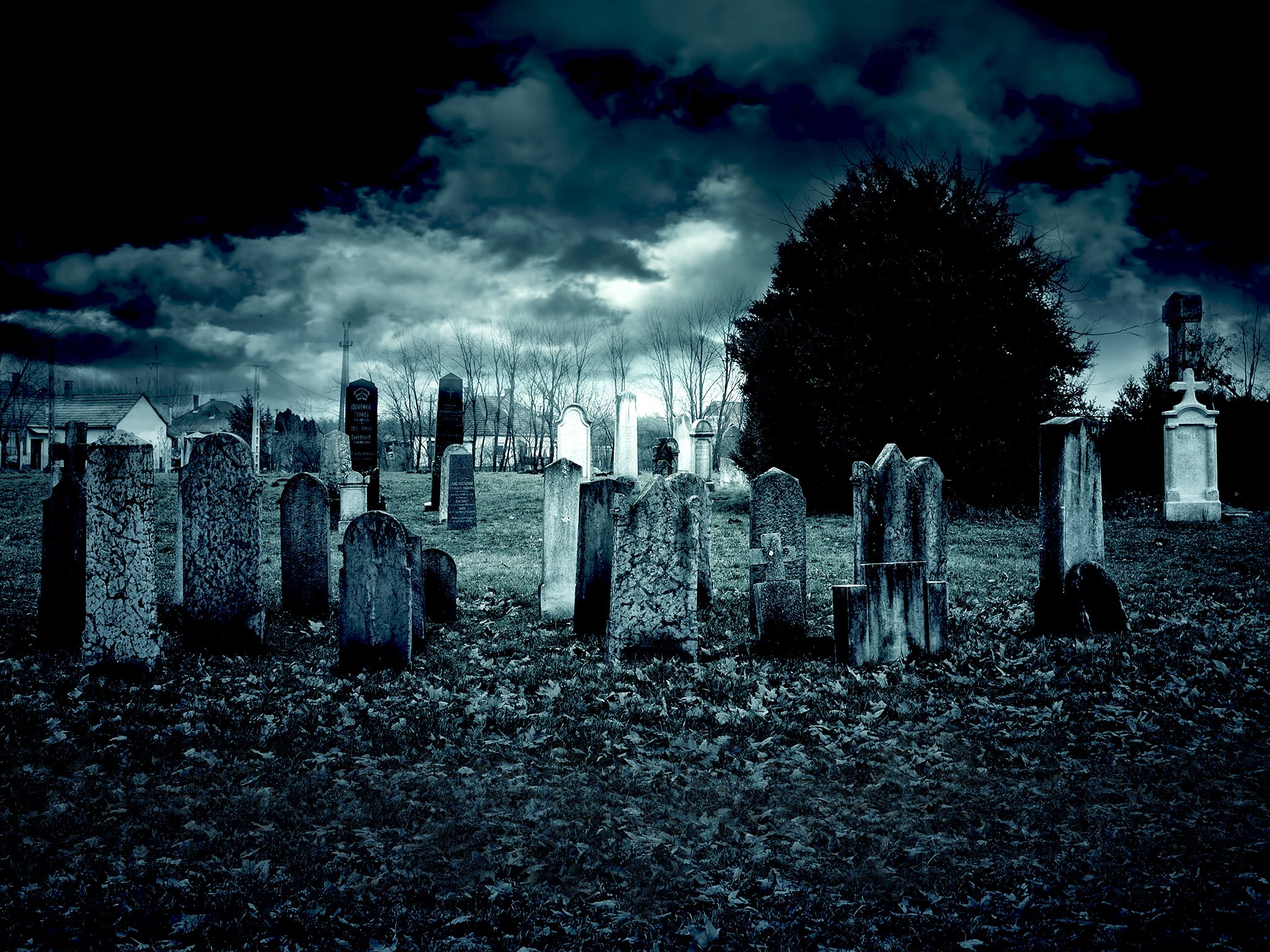
Ride this, you fat bastard!” They were Fred’s last words to his best friend, Bob, leaving him his bike. But not all “death wishes” are so affectionate. In a parting shot from beyond the grave, Rita wrote: “Here’s £1,000 to buy a box of chocolates for everyone in the office – apart from Carol in HR.” On a very practical note, one dying man left his Dyson V6 vacuum cleaner to his mother. “Hi Mum, you said you wanted it. So here you are... Don't register it with Dyson though... As it's off the back of a lorry. HEHEHE.”
The authors of the Babylonian epic, Gilgamesh, the Bible, the Tibetan Book of the Dead, Plato, Shakespeare, and now Fred, Rita and Dyson guy too, all have this in common: a consciousness of “the undiscovered country from whose bourn no traveller returns” – and a posthumous message to those who remain behind. Faced with the inevitability of death, we have several options: we can try to postpone it for as long as possible (reasonable, but ultimately doomed); we can stick our heads in the sand and ignore (delusional stoicism); or we can see it coming from way off, like a surfer spotting a wave on the horizon, and paddle into position to get the best possible ride. It’s not taking back control, it’s more going with the flow.
All those recent valedictory statements, the fond farewells, came to me courtesy of Dan Garrett, who has been dubbed in tabloidese “the Merchant of Death” and runs Farewill, the online host of many a last will and testament. Garrett is a brazen picture of health, youth and cheerfulness who grew up in Golders Green in a house that backed on to the crematorium. “We used to go on family walks around the crematorium grounds,” he says. “It’s beautiful. Marc Bolan is there. Among others.”
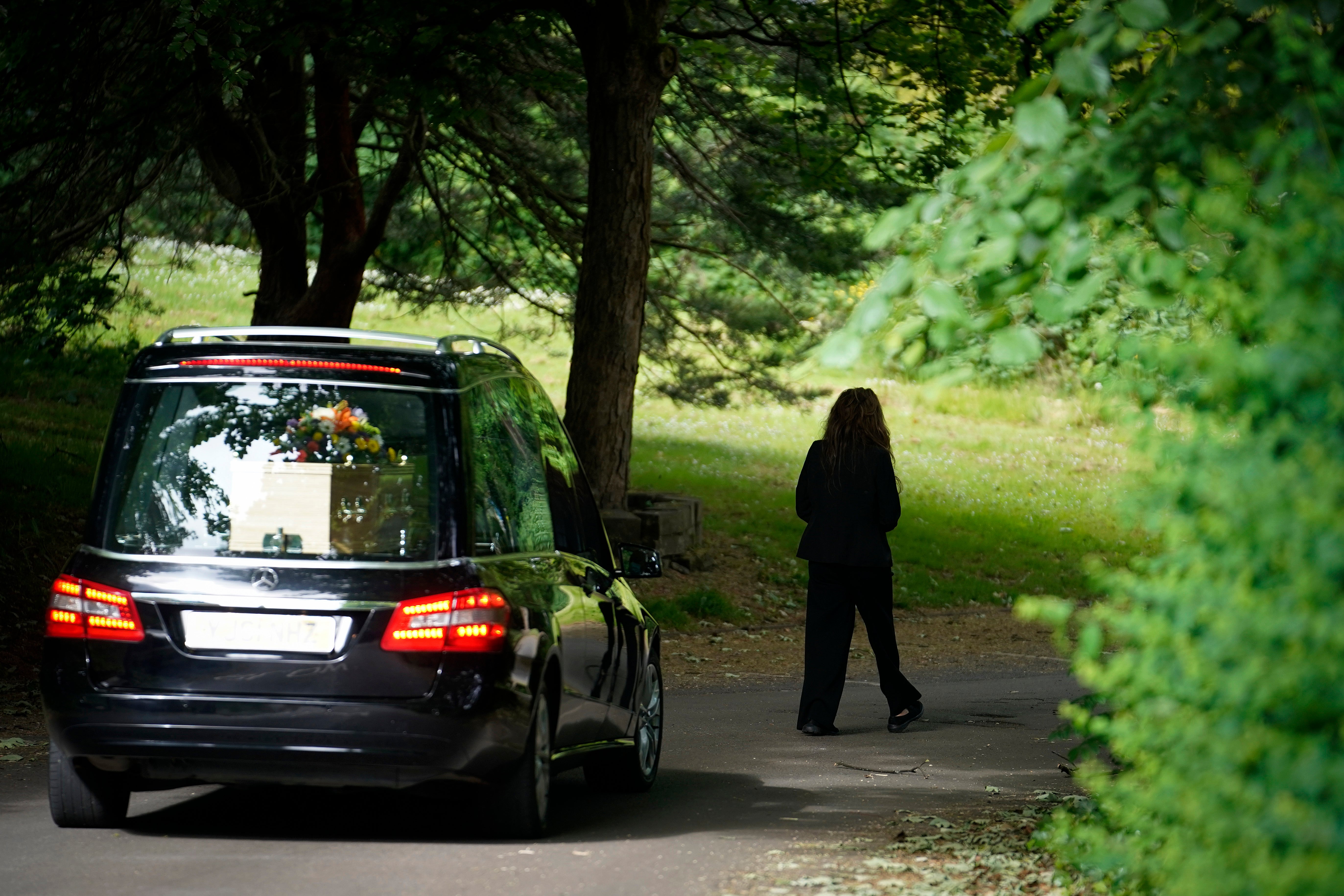
His CV includes studying engineering at Brasenose College, Oxford, and a brief stint with the carmakers, McClaren, where he designed a cup holder. But it was the Global Innovations programme at the Royal College of Art that concentrated his mind when it despatched him to Tokyo for six months – and specifically to a care home where he was employed to make it easier for elderly residents to get up and down stairs. He soon realised that their biggest problem was not physical but mental: “They worried about dying. It’s the same in the UK. We spend so much time trying to ameliorate physical decline, but the single biggest issue is loss of identity and the indignity of death. When you’re 95 you’re not going to be bouncing up and down on a trampoline. But what still matters to you is your sense of selfhood.”
For his “final show” at the RCA, whereas most of his contemporaries were making wonderful paintings or sculptures or installations, Garrett (with his friend and business partner Tom Rogers) produced a website that allowed people to write their last will and testament online, right then and there. And express their final wishes. To say what you want to say before it’s too late. To get it off your chest. To write your own epitaph, when you’re not quite dead yet.
His “exhibition” attracted crowds of people, all queuing up to get their thoughts about life and death down. That was in 2015. In response to public demand, Garrett and Rogers built the website that would become farewill.com. You’re making out your will, but the difference is that you’re not sat in front of a lawyer. It’s you and your computer or your phone. You cut out the middleman.
We spend so much time trying to ameliorate physical decline, but the single biggest issue is loss of identity and the indignity of death. When you’re 95 ... what still matters to you is your sense of selfhood
In the traditional will, people express their personal wishes only one per cent of the time. With Farewill that number went up to 80 per cent. “They’re saying the most amazing things they won’t say anywhere else,” says Garrett. “There are people crying in the office because of the things people have said.” If I was working at Farewill I reckon I’d be sobbing my eyes out all day too:
“Boys, yup, I'm a gonna! You have both given me the best memories that any father could ever wish for. You made my life complete. Now, one last favour from you both please. Wherever you think the best holidays were that we had, please both go back to the top two or three destinations and scatter my ashes on the beach so that the tide comes in and takes me back out so that I may endlessly travel on the waves. So whenever you go to the coast, just look out to sea and I'll be there. Love you. Dada”.
Within two years, one in eight of all wills made out in the UK were on Farewill. Soon their customers were demanding they help with probate too. Then those same customers clamoured for them to provide funerals. And what is clear from all those final wishes is that we are no longer satisfied with the old way of doing things. At present there is a massive asymmetry between how people would like to die and how their death is managed.
We have been obsessing about what to do with mortal remains ever since we stopped being nomads. Back in the good old hunter-gatherer days it was possible to leave the dead and dying behind because you were moving on and carrying a “dead weight” on your back was not a practical option. But if you weren’t going anywhere, having settled down into cities and civilisations, we had to come up with a system.
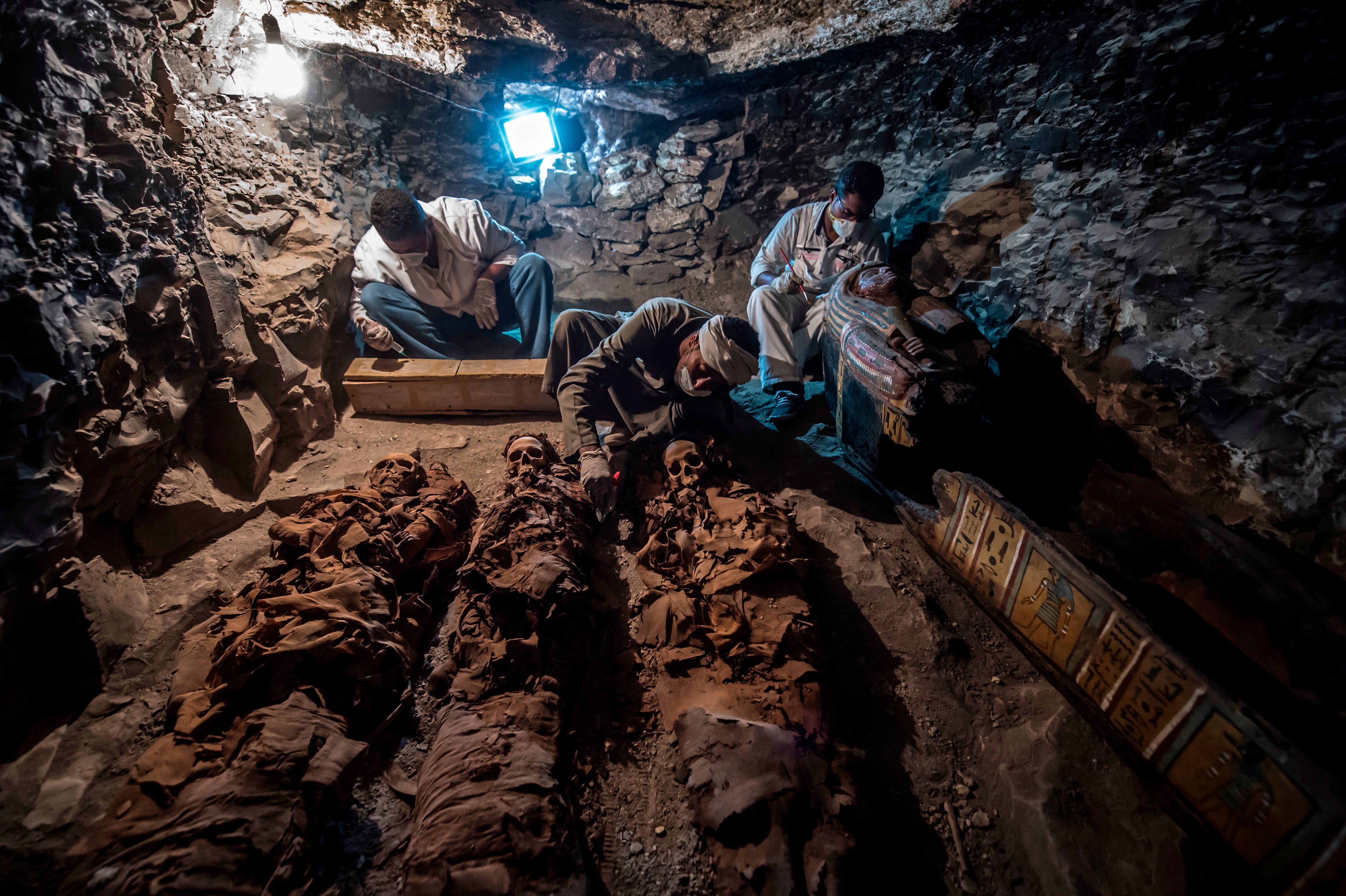
Mummification, the great Egyption tradition, never really caught on, perhaps because you also need a decent-sized pyramid to place the mummy in. The Greeks were clearly preoccupied with death rituals. Antigone revolted against the rule of Creon because he prohibited the burial of her brother Polynices. Homer’s Iliad ends not with a great battle or the story of the Trojan horse, but rather with Priam, king of Troy, being spirited into the Greek camp to beg for the body of his son Hector. Achilles had been dragging it around triumphantly attached to the back of his chariot. There is a war within the war over the treatment of the fallen. The body of Patroclus, having been guarded and protected from dishonour by fellow Greeks, is burned on a funeral pyre (covered with the hair of his grieving comrades and “12 noble sons of brave Trojans”) and finally buried in a golden urn. The funeral is rounded off with an early Olympic games of wrestling, boxing, and chariot-racing.
The main options over thousands of years have been burial or cremation. In the west, Christianity favoured burial, on the model of Jesus (although he didn’t exactly stay buried). But the Cremation Society of Great Britain fought back to establish the first crematorium in England in 1878, arguing that ashes were as easy to resurrect as a decomposing body, and that cremation was better for public health. The Woking Crematorium could boast improved incineration technology, the so-called “regenerative furnace”. But the Roman Catholic church didn’t officially lift its prohibition on cremation until 1963.
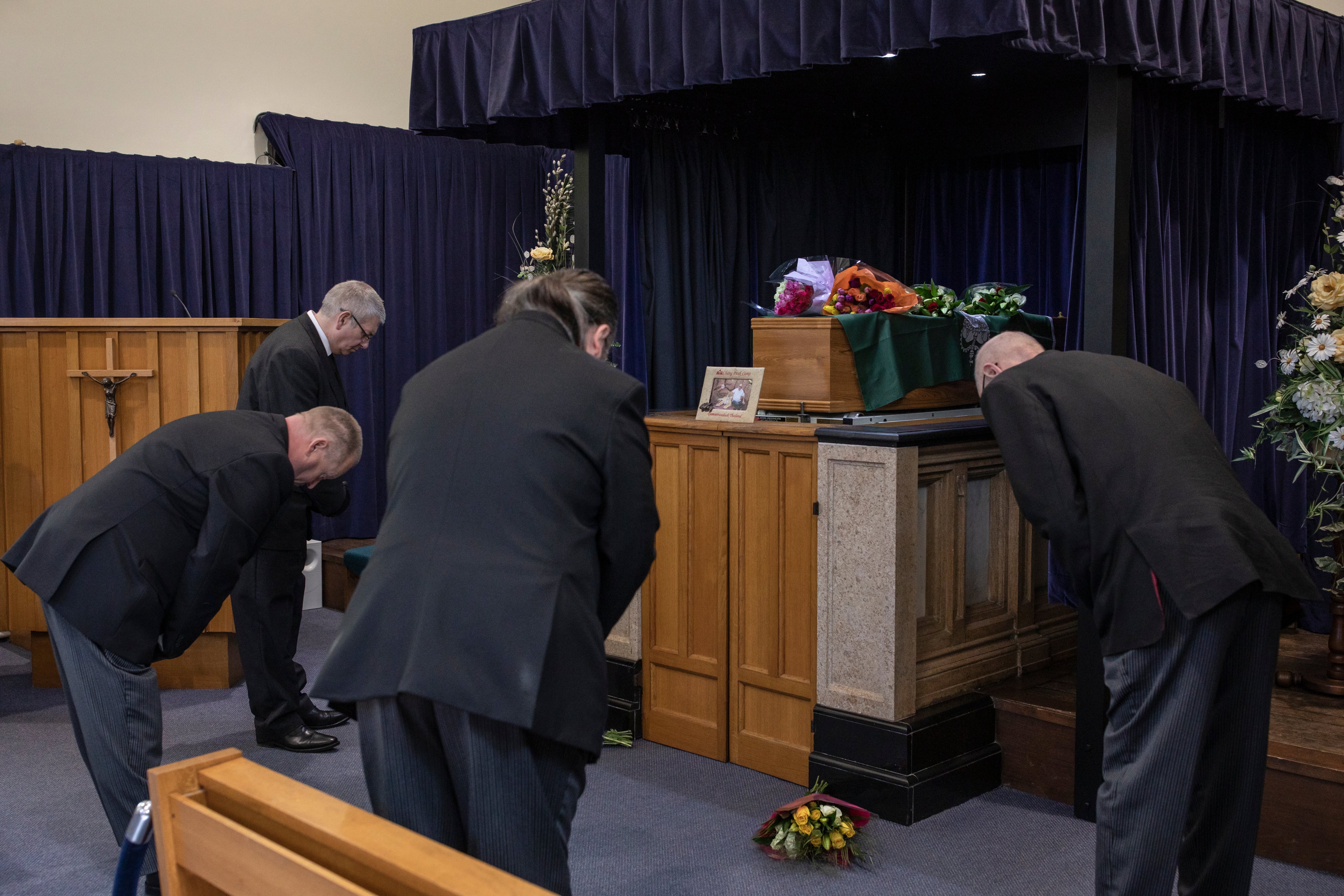
Now our options have multiplied. The Tibetan Buddhist tradition of the “sky burial”, in which vultures are encouraged to consume the departed, might still fly. There’s only one potential problem: a lack of vultures. The once populous birds that the Parsi of Mumbai relied upon to swoop down from the Tower of Silence, to quickly devour the dead, then take off again heavenwards, have nearly all gone, perhaps inadvertently decimated by painkillers. The Parsi have been forced to turn instead to solar panels to do the work of excarnation. But it’s clearly a bad sign when even vultures themselves are dropping off their perch.
According to Wordsworth in his Lyrical Ballads, Lucy ended up “rolled round in earth's diurnal course, With rocks, and stones, and trees”. Bios Urn is making that poetic vision increasingly attainable with a biodegradable urn in which human (or indeed pet) ashes are placed together with a seed on top that then grows into a tree. They offer to “turn cemeteries into forests”. Alternatively, your ashes can be compressed into a “memorial diamond” and worn as jewellery, or fired off into space along with Gene Rodenberry, the Star Trek creator, and Timothy Leary, who previously got high on LSD.

Back in the 1960s, Jessica Mitford published The American Way of Death, which exposed the scam of the funeral industry and how funeral directors take advantage of grief-stricken relatives. In the period 2007-2017, prices more than doubled. Death is a rip-off. One in eight go into debt to pay for a funeral.
There is increasing demand for the “green funeral”. According to people’s express wishes, 20 per cent want a “natural” or “outdoors” funeral, while roughly only 2 per cent of actual funerals fit the bill. One of the most moving farewells I’ve ever been to took place in a far-flung field in rural Cambridgeshire. I doubt I’d even be able to find it again. Marion had expressed a wish to have a “woodland burial”. There was no coffin either, just a simple biodegradable sheath. The carbon footprint is significantly diminished – no embalming, no chemicals, no wood and no smoke either.
On the grounds that I had come close to dying (through drowning) a couple of times, and frequently hung out with sharks, I was once interviewed by Melissa McCarthy, author of Sharks, Death, Surfers: An Illustrated Companion and chief obituary reviewer of the International Necronautical Society. Its manifesto said that “death is a type of space, which we intend to map, enter, colonise, and, eventually, inhabit”. Appropriately enough that organisation died, but it leaves behind a work by one of its founders, Simon Critchley, The Book of Dead Philosophers, which salutes (among others) Socrates, and notably his calm, contemplative, self-annihilating quaffing of hemlock. The Greek language is responsible for eu-thanatos, the happy death.
The old rituals just don’t feel right any more. There is no right way to do it. But what makes a good funeral is bringing people together and sharing stories
All this flurry of innovation around the afterlife must wash back on the period pre-death. If we can control what happens to us after death, then surely we can impose our will on the moment of death itself? Dignitas offers a modern hemlock in Switzerland. Spain recently legalised assisted dying, France is debating the issue and now the island of Jersey is considering passing a law in favour.
The French novelist Michel Houellebecq loudly protested against the French proposal and in favour of “death-agonies”, arguing that indignity, degradation and suffering are normal and indeed meritorious. But this mentality – the pro-pain school of thought – appears to spring from a grand religious tradition (he cites Catholicism, Islam and Judaism) based on the theory of paying your dues and no fast-forwarding. Houellebecq looks increasingly like a Canute holding back the tide.
Personally, I won’t be bothering Dan Garrett or Bios Urn with my funeral arrangements. I already have a cast-iron plan. Unless I get hit by a bus or hacked to pieces by a jealous lover or blown away by the Mafia or poisoned by Putin, I know exactly how I am going to die. I am going to be eaten by a bear – and probably a few buzzards, vultures if there are any going, maybe wolves too. Let’s say, they have expressed an interest and my last wish is to make a donation, of my entire earthly remains, to other creatures who could fancy it. I hate to waste. I should point out that I will already be dead at the time (and for this I am relying on my friend Sam in Montana, who is well equipped with an arsenal for just this kind of job). I’m not up for the Leonardo di Caprio-style fighting with bears. What I definitely don’t fancy is the oven or the box. On the other hand, I’m happy to provide a decent lunch for passing scavengers.
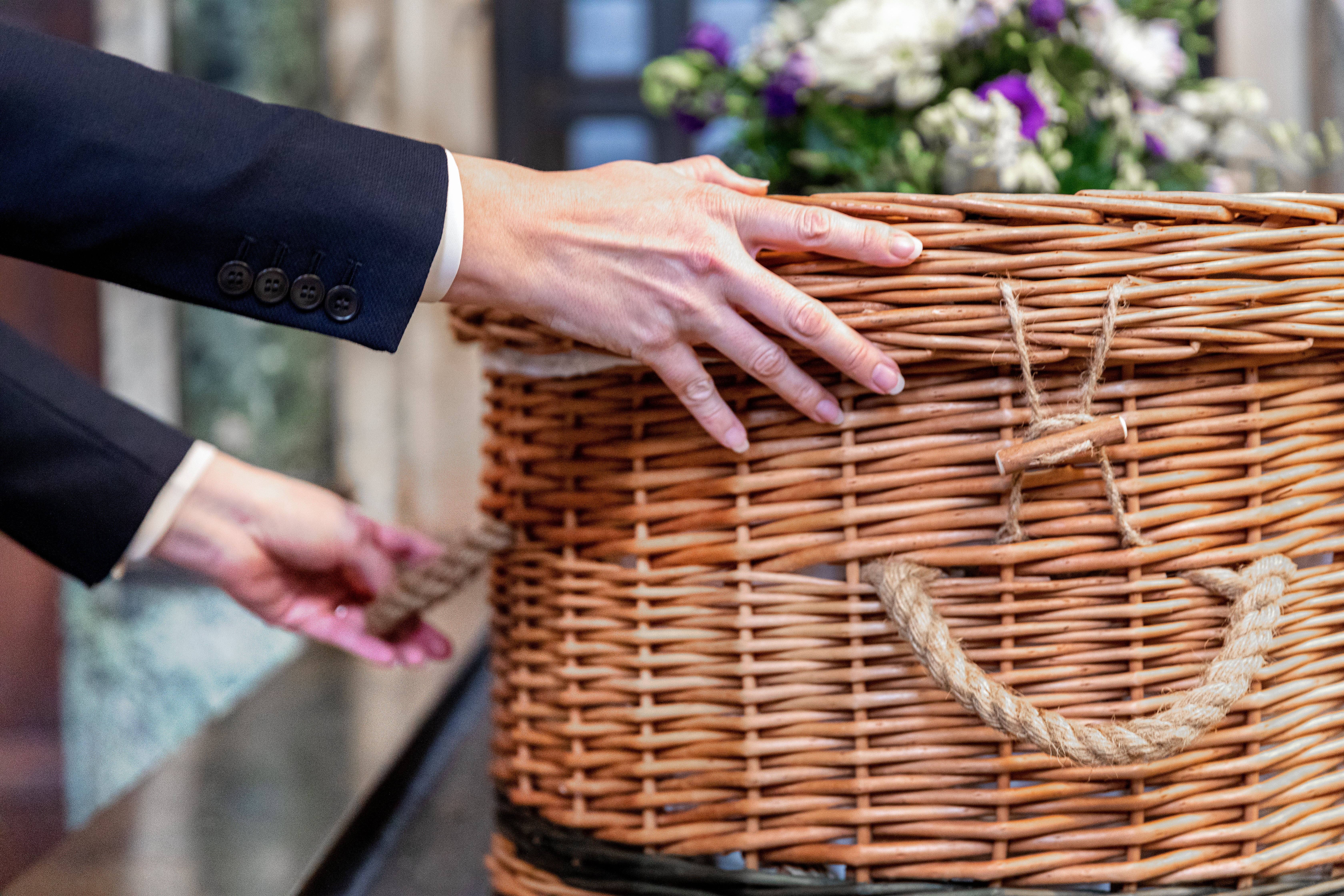
On the more domestic front, Garrett recommends the “direct cremation” – it worked for David Bowie. There is no ceremony, no service. But you can arrange your own party or wake or memorial, whatever you want to do, guided by personal feelings, not convention. Shed tears or set off fireworks. Go to a beach or the Downs or the Heath. “The old rituals just don’t feel right any more. There is no right way to do it. But what makes a good funeral is bringing people together and sharing stories.” He says: “We’re not a death company – we’re a life company.” They were also the cheapest provider of funerals during the pandemic.
Back in 2005, Phil Zeidler had a near-death experience. He was a fit and healthy 30-something and working in the office when he started to feel unwell. He left work early and drove home. He barely made it. His wife, a doctor, packed him off to hospital where he spent the next week or two in an induced coma, suffering from septic shock. He had the whole family lining up at his bedside to say adieu. But he came back from the brink, with no memory of his brief descent into darkness, and determined to do something to sort out his life insurance.
Dead Happy, an online life insurance company, was born. It doesn’t ask, “how much cover do you want?” It asks, “what do you want to happen when you die?” Like Farewill, it encourages its customers to make “death wishes” and even provides templates (“Buy someone a puppy”, “Give someone a tattoo”, “Get your mates to recreate a classic moment”).
We’re all hanging by a thread. It could snap at any time. About 1600 people will die today in the UK. And tomorrow likewise. Every single day. One fine day it’s going to be you – and 20 per cent of males die before they’re 70.
The “five stages of grief” (denial, anger, bargaining, depression and acceptance), first identified by the psychiatrist Elisabeth Kubler-Ross in her classic work, On Death and Dying, are relatively well-known. But there was a sixth stage, defined by her collaborator, David Kessler: “meaning”. All those “death wishes”, the messages beyond the grave, help with grieving because they manage to confer some kind of meaning on a life. Some people like to keep the old grudges going into the next generation.
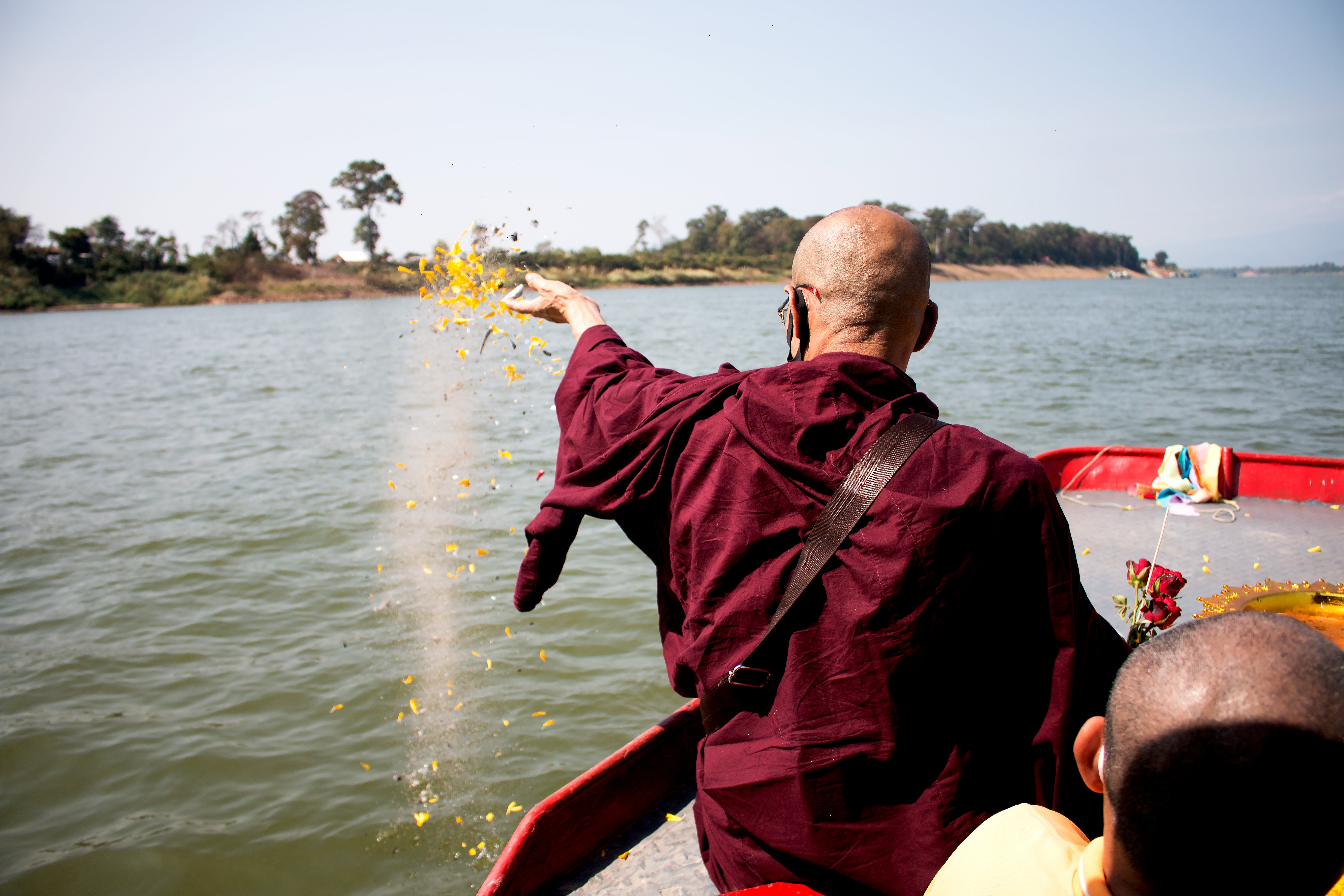
“Please use this money to send the biggest Glitter Bomb to Robert X and make sure he knows that he was the biggest Knob going and he deserves to be miserable, surrounded by a huge cloud of multicoloured glitter.”
It is clear that the solemn old-style funeral is out of favour. “I want a massive party for my friends and family instead of a funeral. With loads of booze and rock music. Then I want Martin to go to Vegas and go on a strip club tour and have all of the lap dances.” Sometimes alcohol is all that is required. “Go to the nearest Wetherspoons and get absolutely hammered. No tears, shitty sandwiches, or awkwardness. Just drink and remember me.”
Personally, I feel relaxed about the booze and the rock music. They’re optional. As is crying. But I would like my organist son to play something a little bit melancholy and yet uplifting when I’m gone. How about the Pie Jesu from Fauré’s Requiem? Either that or you can play an audio recording of bears and buzzards snacking. I won’t mind.
Andy Martin is the author of Surf, Sweat and Tears: the Epic Life and Mysterious Death of Edward George William Omar Deerhurst (OR Books)




Join our commenting forum
Join thought-provoking conversations, follow other Independent readers and see their replies
Comments